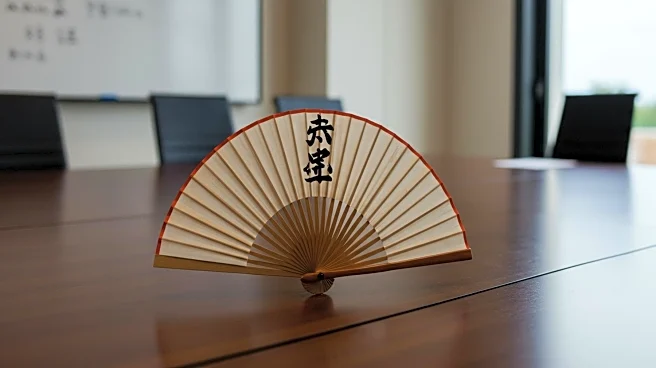What's Happening?
Japanese lawmakers are increasingly contemplating a shift in the country's long-standing non-nuclear policy due to growing security concerns. The 'Three Non-Nuclear Principles,' established in 1967, prohibit Japan from producing, possessing, or hosting nuclear weapons. However, recent geopolitical developments, including President Trump's unpredictable foreign policy and the nuclear capabilities of neighboring countries like China, North Korea, and Russia, have prompted discussions among Japanese officials about potentially revising these principles. Interviews with Japanese lawmakers and military figures reveal a willingness to reconsider the country's reliance on U.S. security guarantees, with some suggesting that Japan might need to develop its own nuclear arsenal to ensure national security.
Why It's Important?
The potential shift in Japan's nuclear policy could have significant implications for regional and global security dynamics. Japan's reconsideration of its non-nuclear stance reflects broader concerns among U.S. allies about the reliability of American security commitments. This development could lead to increased nuclear proliferation in East Asia, potentially escalating tensions with China and North Korea. Additionally, Japan's move towards nuclear armament could influence South Korea's security strategy, as both countries are key pillars of U.S. influence in the Pacific. The change in Japan's policy could also impact international efforts towards nuclear disarmament and non-proliferation, challenging existing treaties and agreements.
What's Next?
Japanese lawmakers are expected to continue discussions on how to reinforce the credibility of the U.S. nuclear umbrella, with some considering revisions to the non-nuclear principles to allow U.S. nuclear weapons on Japanese territory. The ruling Liberal Democratic Party is examining future security arrangements in Asia, which may include nuclear sharing strategies similar to NATO's. The evolving attitudes in Japan and South Korea could prompt diplomatic responses from China, which opposes any military expansion or provocation. The international community will likely monitor these developments closely, as they could reshape security alliances and influence global nuclear policies.
Beyond the Headlines
Japan's potential shift towards nuclear armament raises ethical and historical concerns, particularly given its past as the only nation to suffer atomic bomb attacks. Survivors of the Hiroshima and Nagasaki bombings have expressed dismay at the changing attitudes towards nuclear weapons, emphasizing the importance of mutual trust and diplomacy for real security. The move also highlights the complex balance between deterrence and disarmament, as Japan navigates its role in regional security while maintaining its commitment to a nuclear-free world.









